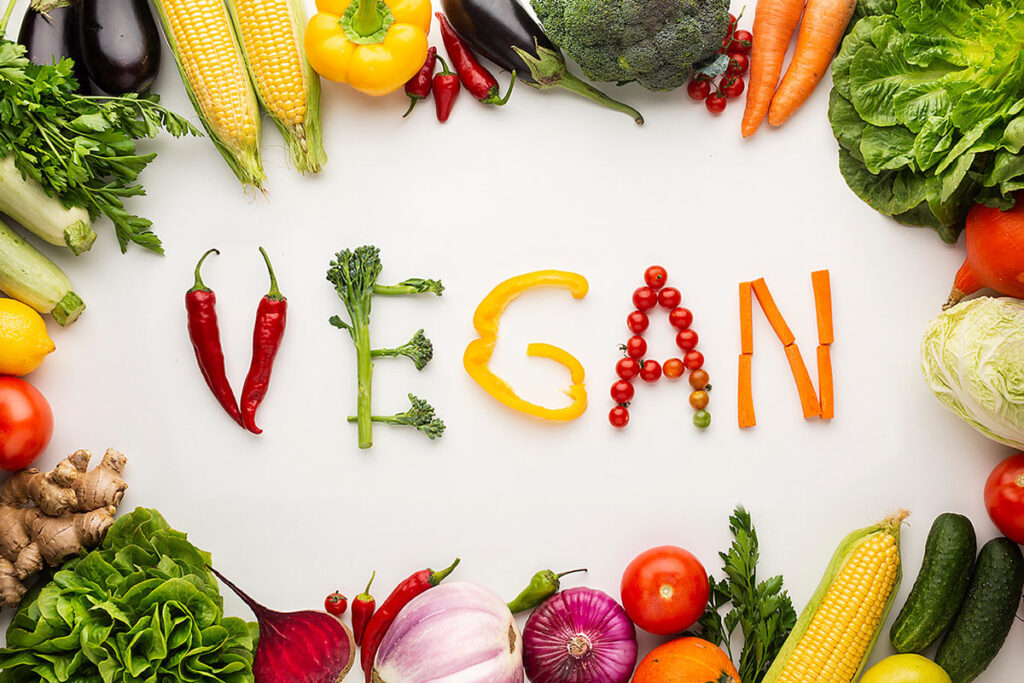Why Vegans Are More Prone to Bone Fractures
People who don’t consume meat, especially vegans, may have a higher risk of bone fractures.
Vegans have a 43 percent increased risk of fractures throughout the body, as well as an increased risk of fractures in specific areas, such as the hip, according to research from Oxford University in England.

“We discovered that vegans had a higher incidence of total fractures, resulting in nearly 20 additional cases per 1,000 people over a 10-year period compared to meat eaters. “For hip fractures, the risk in vegans was 2.3 times higher than in meat eaters, equating to 15 additional cases per 1,000 people over 10 years,” Tammy Tong, Ph.D., BSc, a nutritional epidemiologist at the Nuffield Department of Population Health at the University of Oxford, stated in a press release.
Why Vegans Are More Prone to Bone Fractures
The research, which was published in the journal BMC Medicine, analyzed data from over 54,000 participants in the EPIC-Oxford study, a large cohort of British men and women recruited between 1993 and 2001.
At the outset of the study, nearly 30,000 of the participants were meat eaters, approximately 8,000 did not eat meat but did eat fish, approximately 15,000 were vegetarian, and nearly 2,000 were vegan.
Until 2016, participants were followed for an average of 18 years. During this period, 3,941 fractures were reported. The hip had the highest number of fractures, followed by the wrist, arm, ankle, and leg.
Vegetarians and persons who ate fish but no meat had a greater risk of hip fractures than meat eaters, according to the study. Taking into account body mass index (BMI), calcium, and protein intake partially reduced this risk.
“Previous research has demonstrated that a low BMI is associated with an increased risk of hip fractures and that low calcium and protein intakes are associated with impaired bone health. This study revealed that vegans, who had a lower BMI and lower calcium and protein intakes than meat eaters, had a higher risk of fractures at multiple locations,” Tong explained.
She added, “Well-balanced, predominantly plant-based diets have been linked to improved nutrient levels and lower disease risks, including heart disease and diabetes.” Individuals should consider the benefits and hazards of their diet and ensure adequate calcium and protein intake, as well as a healthy body mass index (BMI), that is, neither under or overweight.
Why herbivores are more susceptible
Assistant professor of nutrition and dietetics at the University of North Florida Lauri Y. Wright, Ph.D., stated that the research’s findings are not unexpected.
“The study results are consistent with those of previous research, so they do not come as a surprise. Increased fractures among vegetarians were partially explained by protein and calcium intake as well as body mass index. Despite controlling for these variables, vegans continued to have an increased risk of fractures. This may be a result of the bioavailability of these essential nutrients for bone health, according to Wright of Healthline.
“For instance, vegans may have consumed adequate calcium, but many plant-based calcium sources, such as spinach, are not as bioavailable as dairy,” she added. “Another example is protein purity. Vegans may have ingested adequate amounts of plant proteins, but the amino acid ratio in plant proteins does not support resorption and remodeling as well as the amino acid ratio in animal proteins.”
According to all experts interviewed by Healthline, it is possible to be vegan and maintain healthful bones.
Kristin Kirkpatrick, MS, a registered dietitian and manager of wellness nutrition services at the Cleveland Clinic Wellness Institute in Ohio, told Healthline, “I have a large number of vegan patients, and when studies are conducted correctly, there are no adverse effects.”
“The key is doing it right,” she explained. “For instance, a person can readily consume large quantities of processed vegan junk food, which would have negative health effects. However, when the emphasis is on whole foods and flora, there are a few disadvantages. Whole soy, beans, and legumes, as well as nuts and grains, contain protein. B12 and vitamin D supplements are also recommended for health.”
How to preserve bone density
Since 2001, Dr. Dana Hunnes, a senior dietitian at the University of California, Los Angeles, has been a vegan.
She asserts that it was much more difficult for vegans to locate vitamin- and mineral-enriched alternatives to animal products in the past.
“There were fewer vegan products, and vegans were required to consume primarily fruits, vegetables, and unfortified foods. When I became vegan, there was essentially only one brand of soy milk, and I don’t believe it contained any additional calcium or vitamin D. Today, there are so many products that replicate animal products and/or contain added vitamins and minerals, according to Hunnes.
She asserts that selecting nutritious foods is essential for vegans to maintain their health.
“Ensure you consume a healthy balance of fresh produce and fortified products, such as soy milk, almond milk, and cashew milk, which are fortified with calcium, vitamin D, and other essential nutrients,” Hunnes advised.
She also recommends that vegans engage in weight-bearing exercises, consume enough vitamin D and calcium, and consume enough calories.
Maintaining health with a vegan diet
Wright asserts that despite the findings of the Oxford study, a vegan diet can be beneficial if properly planned.
“I do not see any disadvantages to being vegan, only challenges. Vegans must carefully plan their diets in order to consume sufficient amounts of essential nutrients such as vitamin B12, iron, calcium, and zinc. We know that being vegan has numerous health benefits. She stated that vegans typically have a healthier body mass index, lower cholesterol levels, and a lower risk for numerous malignancies, heart disease, and diabetes.
“A vegetarian diet can provide all the necessary nutrients. It just requires a little planning. Eat a variety of whole grains, fruits, vegetables, legumes, and nuts, and include soy, to assure a nutritionally adequate diet,” Wright added.



